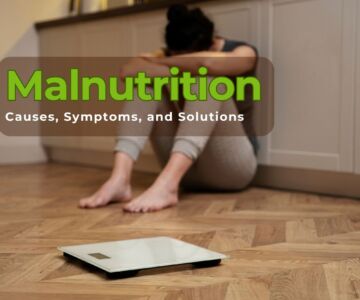 Top 10 Natural Remedies to Soothe Sunburned Skin and Prevent Tanningby admin / November 6, 2024
Top 10 Natural Remedies to Soothe Sunburned Skin and Prevent Tanningby admin / November 6, 2024Why You Should Include More Fruits and Vegetables in Your Diet
In today’s fast-paced world, eating healthy can sometimes take a back seat. However, one simple and effective way to improve your health is by increasing the amount of fruits and vegetables in your diet. Packed with essential vitamins, minerals, and fiber, these natural powerhouses not only help you feel better but also provide numerous long-term health benefits. Here’s why you should add more fruits and vegetables to your meals:
1. Boosts Immune System
Fruits and vegetables are rich in vitamins, minerals, and antioxidants that strengthen the immune system, helping your body fight off infections and diseases. Vitamin C from oranges, berries, and bell peppers, for instance, plays a crucial role in maintaining a robust immune system.
2. Supports Heart Health
Consuming fruits and vegetables can lower blood pressure, reduce the risk of heart disease, and improve overall cardiovascular health. Leafy greens like spinach, as well as potassium-rich fruits such as bananas and oranges, help regulate blood pressure, keeping your heart in good shape.
3. Aids in Weight Management
Fruits and vegetables are low in calories and high in fiber, which helps you feel full longer, reducing the likelihood of overeating. They can replace higher-calorie foods in your diet, making it easier to maintain a healthy weight. Incorporating a variety of fruits and veggies also provides essential nutrients that support metabolism and energy levels.
4. Improves Digestion and Gut Health
The fiber in fruits and vegetables is essential for healthy digestion. It helps regulate bowel movements, prevent constipation, and support a balanced gut microbiome. Vegetables like broccoli, carrots, and artichokes, along with fiber-rich fruits like apples and pears, play a key role in keeping your digestive system healthy.
5. Reduces the Risk of Chronic Diseases
A diet rich in fruits and vegetables is associated with a reduced risk of chronic diseases, including diabetes, obesity, and certain cancers. Phytochemicals found in plants help reduce inflammation and oxidative stress, which can protect against these diseases. Regularly consuming colorful produce—like tomatoes, blueberries, and sweet potatoes—ensures you’re getting a variety of protective compounds.
6. Enhances Skin Health and Appearance
The antioxidants and vitamins in fruits and vegetables contribute to glowing skin and combat signs of aging. Vitamin C helps in collagen production, which keeps your skin firm and youthful, while beta-carotene from carrots and sweet potatoes promotes a natural radiance and protects against sun damage.
7. Supports Mental Health and Mood
Studies suggest that a diet high in fruits and vegetables can improve mental well-being. Nutrients such as folate (found in leafy greens) and vitamin B6 (found in bananas and avocados) are essential for brain health and can positively influence mood. Regular consumption of a variety of fruits and vegetables has been linked to lower rates of depression and anxiety.
8. Improves Bone Health
Fruits and vegetables, particularly those rich in potassium, vitamin K, and magnesium, contribute to better bone health. Dark leafy greens like kale and collard greens, as well as fruits like oranges and figs, provide the necessary nutrients for maintaining strong and healthy bones.
9. Promotes Longevity
A diet abundant in fruits and vegetables is linked to a longer life. By reducing the risk of heart disease, cancer, and other chronic conditions, these foods contribute to overall longevity and vitality. The World Health Organization (WHO) recommends eating at least five servings of fruits and vegetables daily to support a healthy and long life.
Tips for Including More Fruits and Vegetables in Your Diet
- Add veggies to every meal: Incorporate vegetables into your breakfast omelets, lunch sandwiches, and dinner stir-fries.
- Snack smart: Replace chips and sweets with fresh fruit or raw veggie sticks.
- Blend it up: Smoothies are an easy and delicious way to consume several servings of fruits and vegetables at once.
- Make it fun: Try new recipes that make fruits and vegetables the stars of your meal. Experiment with different seasonings and cooking methods to keep things exciting.
- Prepare in advance: Wash and cut fruits and vegetables at the beginning of the week so they’re ready to grab and eat when you’re hungry.
Vitamin deficiencies can cause various symptoms and health issues, but many can be managed or even reversed by incorporating specific fruits into your diet.
1. Vitamin C Deficiency
- Symptoms: Fatigue, weakened immune function, frequent infections, bleeding gums, joint pain, and dry skin.
- Fruits to Eat: Oranges, strawberries, kiwis, guavas, papayas, and cantaloupes are all rich in vitamin C and help boost the immune system and improve skin health.
2. Vitamin D Deficiency
- Symptoms: Bone pain, muscle weakness, fatigue, depression, and frequent illnesses.
- Fruits to Eat: Though fruits are not a major source of vitamin D, orange juice is often fortified with this vitamin. Sun exposure and fortified foods are the best sources, but incorporating vitamin D-fortified orange juice can help supplement your intake.
3. Vitamin A Deficiency
- Symptoms: Dry eyes, night blindness, skin issues, weakened immunity, and delayed growth in children.
- Fruits to Eat: Mangoes, cantaloupes, apricots, and papayas contain beta-carotene, which the body converts into vitamin A, essential for eye health and immune function.
4. Vitamin B1 (Thiamine) Deficiency
- Symptoms: Fatigue, irritability, poor coordination, muscle weakness, and nerve damage in severe cases.
- Fruits to Eat: Oranges and watermelon provide some thiamine and can help supplement your intake along with other thiamine-rich foods like whole grains and legumes.
5. Vitamin B2 (Riboflavin) Deficiency
- Symptoms: Cracked lips, mouth sores, sore throat, skin rashes, and eye sensitivity to light.
- Fruits to Eat: Bananas and avocados contain riboflavin and, when paired with vegetables like spinach or dairy, can help boost levels of this important vitamin.
6. Vitamin B3 (Niacin) Deficiency
- Symptoms: Digestive issues, skin rashes, fatigue, and in severe cases, pellagra, which includes symptoms like dermatitis, diarrhea, and dementia.
- Fruits to Eat: Avocados and dates contain niacin and can be beneficial when included in a balanced diet that also contains proteins.
7. Vitamin B5 (Pantothenic Acid) Deficiency
- Symptoms: Fatigue, irritability, numbness, muscle cramps, and digestive issues.
- Fruits to Eat: Avocados and oranges provide some pantothenic acid, which supports energy production and healthy skin.
8. Vitamin B6 (Pyridoxine) Deficiency
- Symptoms: Skin rashes, mood changes, weakened immunity, and in severe cases, anemia.
- Fruits to Eat: Bananas, avocados, and watermelons are good sources of vitamin B6 and can support mood regulation and immunity.
9. Vitamin B7 (Biotin) Deficiency
- Symptoms: Hair loss, brittle nails, skin rashes, and fatigue.
- Fruits to Eat: Bananas, strawberries, and apples contain biotin, which supports hair, skin, and nail health.
10. Vitamin B9 (Folate) Deficiency
- Symptoms: Fatigue, shortness of breath, irritability, and in severe cases, anemia.
- Fruits to Eat: Oranges, strawberries, and papayas are high in folate, which is essential for DNA synthesis and red blood cell production.
11. Vitamin B12 Deficiency
- Symptoms: Fatigue, weakness, constipation, nerve damage, mood changes, and in severe cases, memory loss.
- Fruits to Eat: Vitamin B12 is not naturally found in fruits, so it’s essential to get this vitamin from fortified foods or supplements if you are vegetarian or vegan. Consult a healthcare provider for the best options.
12. Vitamin E Deficiency
- Symptoms: Muscle weakness, vision problems, immune system impairment, and skin issues.
- Fruits to Eat: Kiwi, mango, and blackberries provide vitamin E, which supports skin health and the immune system.
13. Vitamin K Deficiency
- Symptoms: Easy bruising, excessive bleeding, and blood clotting issues.
- Fruits to Eat: Kiwi, blueberries, and blackberries contain vitamin K, which is essential for blood clotting and bone health.
Final Thoughts
Adding more fruits and vegetables to your diet is one of the most effective ways to enhance your health, feel better, and prevent diseases. With a little creativity and planning, it’s easy to incorporate a wide variety of produce into your daily meals. Make the commitment today to prioritize fruits and vegetables—your body and mind will thank you!



